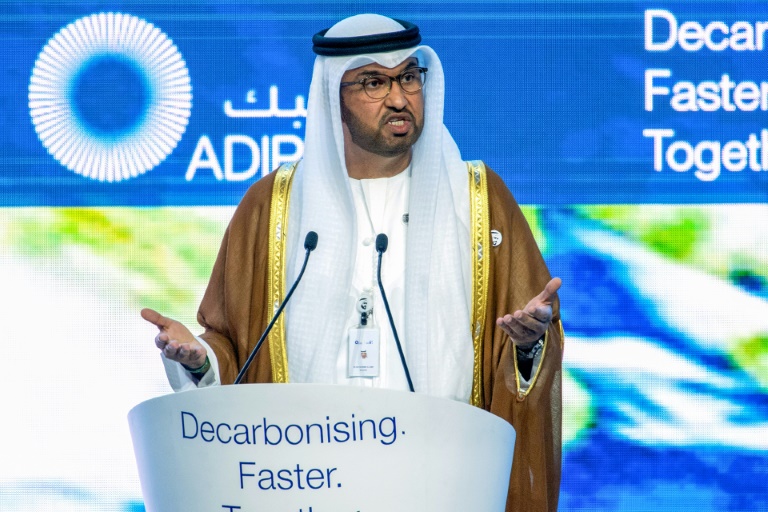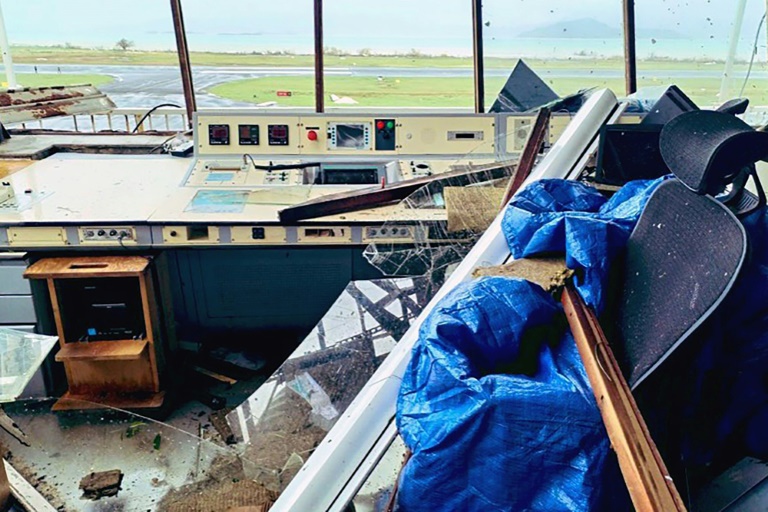The president of the upcoming COP28 climate talks told an Abu Dhabi oil conference on Monday that the fossil fuel industry would play an essential role in addressing the climate crisis.
“For too long, this industry has been viewed as part of the problem, that it’s not doing enough and in some cases even blocking progress,” said Sultan Al Jaber, the president-designate of the COP28 talks, who is also the head of UAE state-owned oil firm ADNOC.
“This is your opportunity to show the world that, in fact, you are central to the solution,” he told the ADIPEC conference of global industry figures and government officials.
“This industry can change the global debate… It is time to silence the sceptics by applying scale, capital and technology to deliver outcomes.”
Jaber urged industry leaders to curb emissions associated with energy production and expand use of renewable energy sources.
He also encouraged them to embrace “low carbon solutions” like carbon capture and storage, tools that climate experts say distract from the urgent goal of slashing fossil fuel pollution.
Climate activists have criticised the appointment of Jaber to lead the COP28 talks which kick off next month in Dubai.
But Jaber has garnered the support of COP parties including US climate envoy John Kerry, partly by emphasising his belief that “the phase-down of fossil fuels is inevitable” — a message he repeated on Monday.
At the same time top oil executives and officials from major oil-producing countries have advocated ramped-up investment to meet demand and stave off energy shortages.
Haitham Al-Ghais, secretary general of the Organisation of the Petroleum Exporting Countries (OPEC), told the conference that calls to cease fossil fuel investments were dangerous.
“We see calls to stop investing in oil. We believe this is counterproductive,” he said.
“This puts countries… from Europe and many other parts of the world at risk, because the cornerstone of global economic prosperity today is energy security.”
Instead, he called for investments of $600 billion per year between now and 2045 “just for the oil industry”.
He added: “This is what it requires to be able to achieve energy security for Europe, for the rest of the world.”







